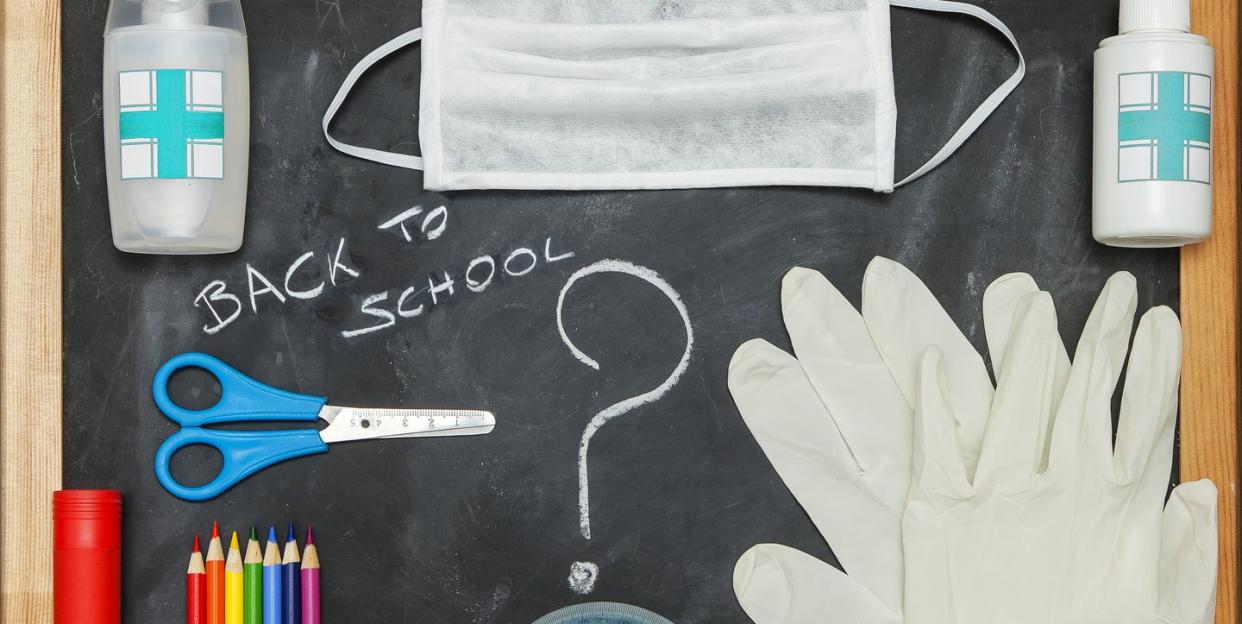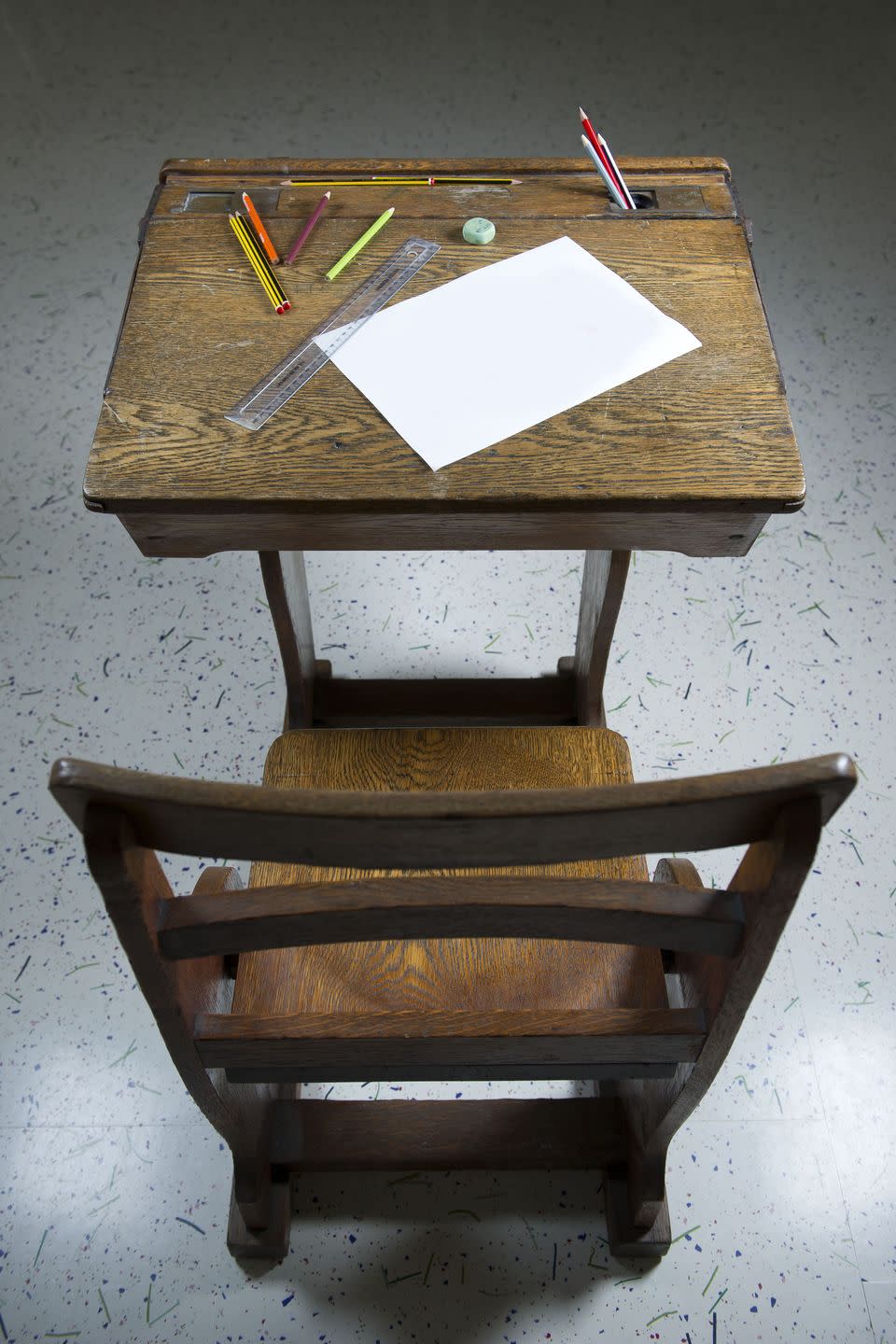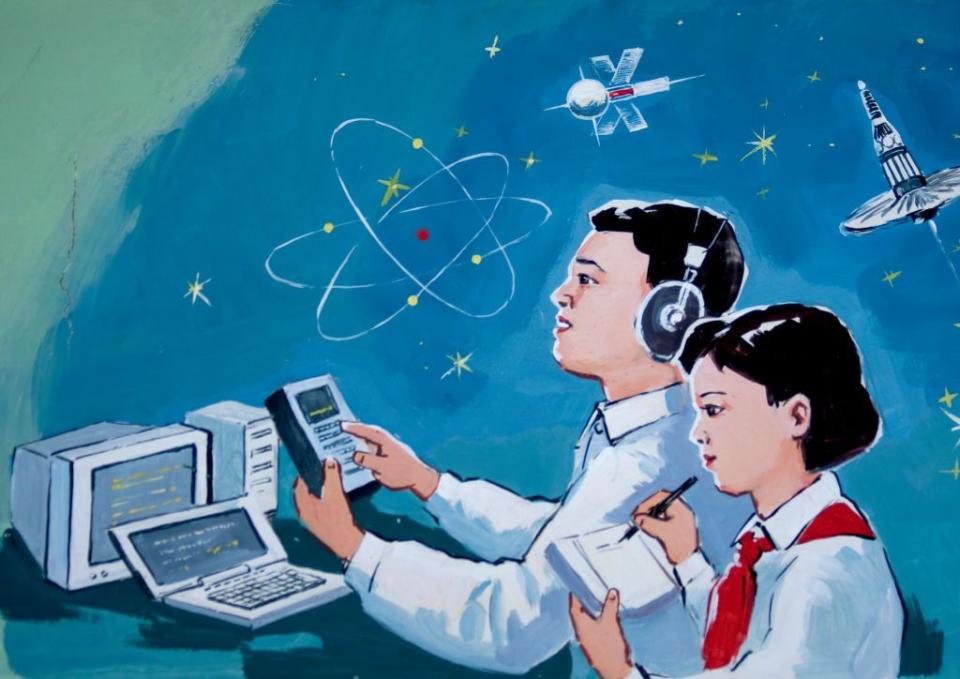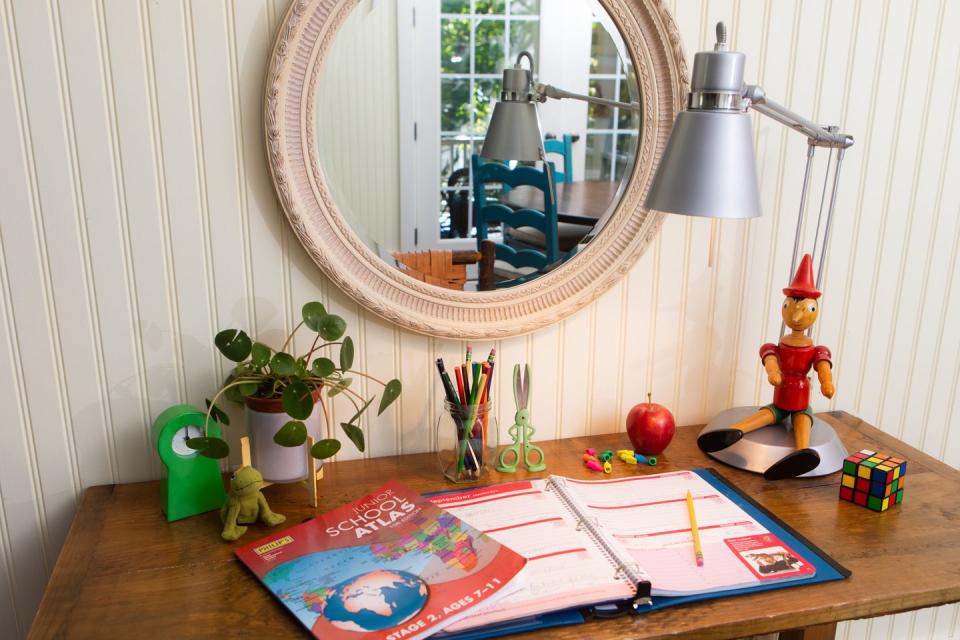Posh Pod or Resort Academy? The Rich Head Back to School in a Pandemic

Multipage contracts. Four-figure rentals. Liability insurance. Welcome to the intricate, high-stakes, and expensive universe of running a learning pod in the midst of a global pandemic. For an increasing number of parents who have turned to this option—in effect creating their own schools—it is an endeavor that is proving far more complicated than just inviting a few families over to have their kids learn together in the backyard.
Pandemic pods have been called the hottest trend in education, and it’s not hard to understand why. Few parents want to endure another semester of Zoom school. And even many of those who have the option of in-person learning don’t want to expose their children to large groups of people. (The science on children transmitting COVID-19 is still being debated but a recent CDC study found that children at day care can spread the virus to adults.) As a consequence, many have taken education into their own hands and are, for better and worse, running with it.
The Pod Arms Race

“We had someone in the Hamptons ask if we could build a school on their property,” said Joseph Connor, cofounder of SchoolHouse, a company that provides educational services. “That’s not exactly what we do.” What SchoolHouse does do is facilitate the organization of pods—small groups of families who join together to hire a teacher, set a curriculum, and provide a learning space for their school-age children. The service costs about around $14,000 per child for the year. (Connor says 97 percent of that fee goes towards paying the teacher.) The parents are responsible for providing the learning space, while SchoolHouse handles fine-print items, such as helping participants set up liability insurance (a requirement for pods), ensuring the pods comply with local school standards in each state, and providing a curriculum. (Want to go the Montessori route? No problem. SchoolHouse will give you the lesson plans.)
In January, when the company was founded, SchoolHouse projected organizing 15 pods by the third quarter of 2020. Now it estimates it will have 100 pods with more than 600 students in the New York tri-state area this fall. Other companies have jumped into the fray, including Kinderoutside, a pod matchmaking site launched recently by Marla Schuchman, who says she started her business after witnessing the “trauma” parents faced scrambling to do all the coordinating around education and childcare themselves. (The site's tagline: "It's hard enough being a parent when there isn't a crisis.") “The goal of the platform is to find other families that share their comfort level with risk,” Schuchman said. Kinderoutside, which is planning to go into beta later this month, has a questionnaire—just like a dating site—about habits such as mask-wearing and social distancing.
Pod Growing Pains

The pod process is new—especially for those accustomed to sending their children to amenity-heavy private schools—and many first-timers are already experiencing friction, according to Amanda Uhry, founder of Manhattan Private School Advisors, who has counseled dozens of families recently on pods. Many of the problems she has witnessed "are typical one-percenter things like, ‘My kid is more special than your kid and must be treated as such.’ Then you have the know-it-all 'expert.'" But other issues are more universal. "These arrangements are tenuous,” she said. "If someone gets COVID-19 in one of these pods, how long before it all comes crashing down?"
In New York City, some families are shelling out $4,000 a month to rent studio spaces for their pods (the city's reopening plan is particularly fraught) and some rental agents in Manhattan have even begun advertising their properties as ideal for hosting pods. But even the real estate part of the process can be problematic, said Uhry, who has heard of five pods that have been thrown out of a New York City apartment buildings. "You can't just walk into a condo or coop and bring in 10 other people to have a classroom in a building, particularly without liability insurance, which so many of these pods don't have." she said.
Great Expectations
Parents are also navigating a complex web of issues, including the fact that we now live in a moment when a child’s education and a family’s grooming choices are inextricably linked. “Are we getting haircuts?” is a question one parent in a Richmond, Virginia, pod recently raised. The baseline, she said, was to default to the most conservative and worried person’s feelings. “We have had some uncomfortable moments already.”
For some pods, one teacher isn’t enough. Uhry said there are groups of families bringing in specialists for music, art, science, and physical education. “At that point, why not just send the kids to school?”
Dual language pods are in high demand. Uhry says she knows of at least 20 that are offering French lessons. Similarly, SchoolHouse has fielded requests for Spanish and Mandarin immersion, along with robotics and coding courses. Connor, the company’s founder, says they’ve been able to accommodate them. “We have a fairly deep pool of teacher talent,” he said.
The Vacation Option
For deep pocketed parents who feel that arranging a pandemic pod is too monumental an undertaking, the hospitality industry has stepped in to take the edge off. This week the luxury hotel brand Montage launched Montage Academy. In Deer Valley, Laguna Beach, Los Cabos, and Palmetto Bluff, students will have access to ACT and SAT tutoring, practice quizzes in several subject areas, electives such as art, history, or life sciences, and movement breaks, sponsored by Spa Montage. (Price tag: $725 a week.)
This fall the Kennebunkport Resort Collection has a “coastal learning” program at their hotels in Maine that will provide in-room desks, schools supplies, and has hands-on learning with the hotel's on-site farm.
And at the Rosewood Miramar Beach in Southern California, younger guests can turn their poolside cabana into a classroom, complete with flat screen TV, Apple TV, and iPad.

Whatever the permutation of the pod—whether it’s held poolside, in a rented Manhattan studio, or a backyard—parents are going to do whatever it takes to for their children’s education, said Peter Ruppert, founder of Global Academy, a private online school for students in grades six through twelve. “They [parents] are worried,” he said, “that traditional schools won’t be able to deliver a good program.”
You Might Also Like

